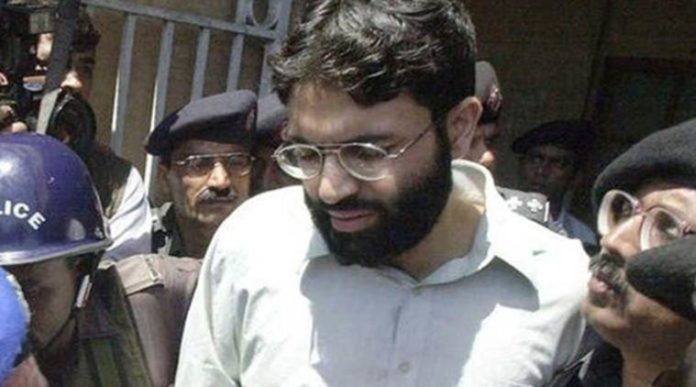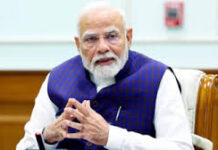New Delhi (NVI): In a judgment described by India as “travesty of justice”, Pakistan Supreme Court today ordered release of Ahmed Omar Saeed Sheikh, one of the three terrorists freed by New Delhi in exchange of hostages of hijacked Indian Airlines plane in 1999, in murder case of American journalist Daniel Pearl.
Sheikh, a British-born Al-Qaeda terrorist, was the main accused in the beheading of Pearl, the 38-year-old South Asia bureau chief for The Wall Street Journal, in Karachi in 2002 and had been convicted by a lower court and awarded death sentence.
The Pakistan Supreme Court ordered Sheikh’s freedom, upholding the Sindh High Court verdict to overturn his conviction in the high profile case watched closely by the US.
A lower court of Pakistan had found Sheikh involved in the kidnapping and murder of Pearl and awarded him death sentence. However, the Sindh High Court on April 2 last year commuted it to seven years’ imprisonment, while absolving him in Pearl’s murder but upholding his conviction for kidnapping and hence the lesser punishment. Subsequently, last month, the High Court ordered his release.
As the US and human rights activists voiced “deep concern” over the High Court verdict, the Sindh government challenged the verdict in the Supreme Court. The appeal of the government was today dismissed by the three-judge bench of the Supreme Court, while delivering the judgement.
Commenting on the development, Spokesman of India’s External Affairs Ministry Anurag Srivastava said, “I had mentioned earlier about the very low conviction rate in Pakistan when it comes to sentencing of terror accused. This case truly demonstrates Pakistan’s intent on taking action on terror front.”
Describing as “travesty of justice” that Sheikh could not be found “guilty of any charges in this heinous act of terror”, the spokesman said, “Our position on Pakistan taking sustained, verifiable, credible and irreversible action against terrorism and terrorist funding emanating from all territory under its control remain unchanged.”
India has particular interest in Sheikh since he was released from an Indian jail, along with two other top terrorists – Masood Azhar, who later formed Jaish-e-Mohammad outfit, and Mushtaq Zargar alias ‘Latram’, chief commander of Al Umar Mujahideen outfit, to secure freedom of 166 passengers and crew of Indian Airlines plane IC-814 hijacked in December 1999.
All the three had been held in connection with acts of terrorism in India.
On December 24, 1999, five Pakistani terrorists hijacked the IC-814 plane during its flight from Kathmandu to New Delhi and commandeered it to Kandahar in Afghanistan, which was then under Taliban rule.
The hijackers demanded release of Sheikh, Azhar and Zargar and India had to accept the demand for safety of the hostages.
After his release, Sheikh lived in Pakistan but kept visiting Afghanistan to train terrorists.
Pearl was abducted and beheaded while he was in Pakistan investigating a story in 2002 on the links between the country’s powerful spy agency ISI and Al-Qaeda.








